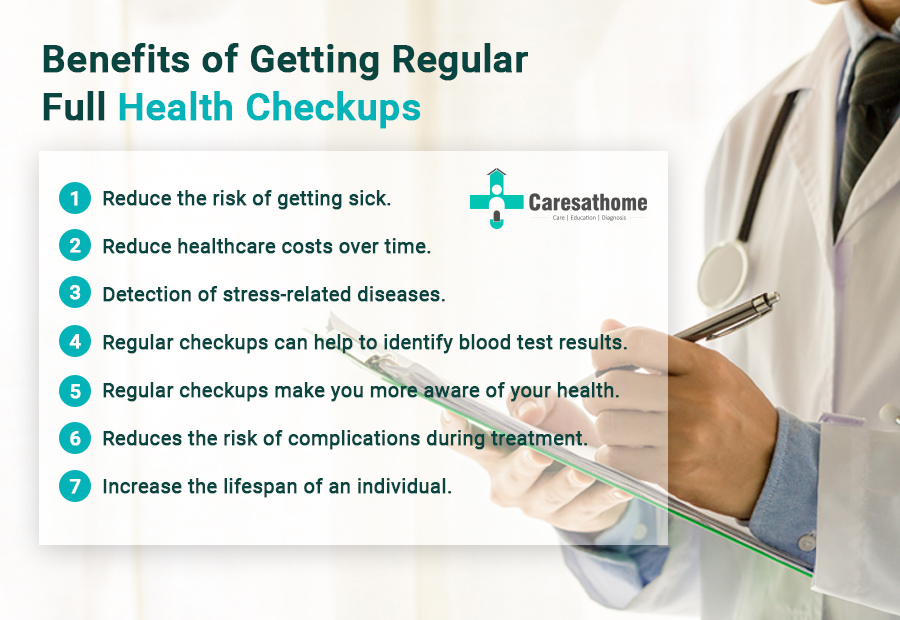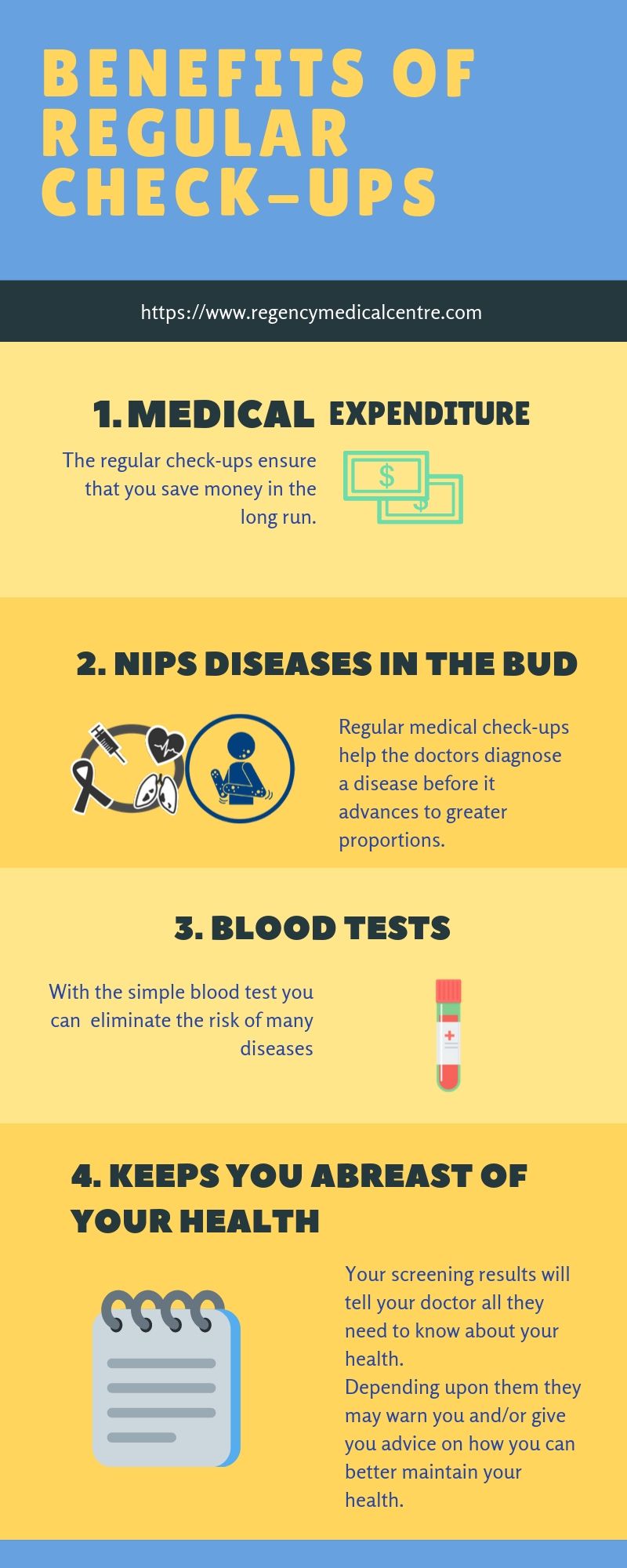Regular checkups are important for maintaining good health and preventing potential problems. They help identify any underlying issues and allow for early intervention, increasing the chances of successful treatment.
Regular checkups play a crucial role in keeping our bodies healthy and detecting any health concerns before they escalate. These routine visits to healthcare professionals enable us to monitor our overall well-being, identify potential risk factors, and receive necessary preventive care.
From evaluating our vital signs to conducting comprehensive screenings, regular checkups empower us to take proactive measures towards maintaining optimal health. By addressing health concerns promptly, regular checkups facilitate early detection and treatment of diseases, improving the likelihood of positive health outcomes. Prioritizing regular checkups helps us stay on top of our health and fosters a proactive approach towards our overall well-being.

Credit: www.caresathome.com
The Benefits Of Regular Checkups
Regular checkups play a vital role in maintaining good health and well-being. Detecting health issues early is one of the main benefits of these checkups. By identifying potential problems at an early stage, healthcare providers can initiate prompt treatment, increasing the chances of successful recovery. Another advantage is the effective management of existing health conditions. Regular monitoring allows doctors to adjust treatments and medications, ensuring optimal control and preventing complications. These checkups also serve as a preventive measure, preventing future health problems before they become serious. Through screenings and tests, potential risk factors can be identified, enabling individuals to make lifestyle changes and adopt preventive measures accordingly. So, whether you are experiencing symptoms or feeling perfectly fine, regular checkups should be an integral part of your healthcare routine.

Credit: www.regencymedicalcentre.com

Credit: www.storkgyn.com
Frequently Asked Questions For The Importance Of Regular Checkups
How Often Should You Have A Regular Checkup?
It is recommended to have a regular checkup at least once a year. However, frequency may vary based on individual health conditions and age. Consulting with a healthcare professional can help determine the appropriate interval for your regular checkups.
What Are The Benefits Of Regular Checkups?
Regular checkups help detect potential health issues in their early stages, allowing for timely treatment. They also enable healthcare professionals to monitor your overall health, provide preventive care, and offer personalized advice for maintaining a healthy lifestyle.
What Can I Expect During A Regular Checkup?
A regular checkup typically involves a physical examination, medical history review, checking vital signs, and possibly ordering tests or screenings. Your healthcare provider will also address any concerns or symptoms you may have and provide advice on preventive measures and lifestyle modifications.
What Happens If I Skip Regular Checkups?
Skipping regular checkups can put your health at risk. Potential health conditions may go undetected, leading to further complications and delayed treatment. Regular checkups allow healthcare professionals to identify issues early on and provide necessary interventions to maintain good health.
Conclusion
Regular checkups are an essential component of maintaining good health. From identifying potential health issues early to receiving necessary treatments, regular checkups serve as preventive measures to ensure overall well-being. By scheduling regular appointments with healthcare professionals, individuals can prioritize their health and make informed decisions about their lifestyle choices.
Don't neglect the importance of regular checkups; they play a critical role in managing and addressing various health concerns proactively. Take charge of your health today and prioritize regular checkups for a happier, healthier future.
Comments
Post a Comment